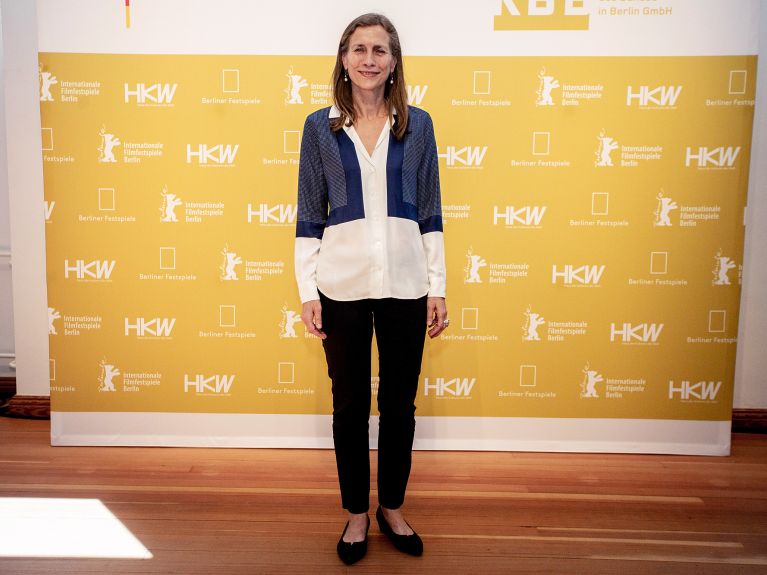Impressive stories being told
Which movies from Germany are the biggest international successes? Mariette Rissenbeek, the future director of the Berlinale explains.

Few people are as well-informed about the German film scene as Mariette Rissenbeek from the Netherlands. She is managing director of German Films, the national information and advisory centre for the promotion of German cinema and television films worldwide. As of 2020, Mariette Rissenbeek will be heading the Berlinale together with Carlo Chatrian from Italy.

Ms Rissenbeek, what makes German cinema productions so attractive internationally?
The production quality is high. Even the low budget films are generally very well crafted, ranging from editing to colouring and the quality of the actors. Audiences with high expectations, for instance with viewing habits shaped by American film productions, don’t need to adapt themselves visually, whilst the films offer a great variety as far as content is concerned.
Can you give us a few examples of this variety?
For instance, the spectrum includes horror films and psycho thrillers, historical dramas and family histories. One good example of a family history film is the sensitive tragicomedy Toni Erdmann which drew international attention. Films focusing on German history are also attracting great interest, for instance, The People vs Fritz Bauer, or Labyrinth Of Lies, both of which concentrate on the Frankfurt Auschwitz Trials. Then there are international successes such as the drama Herbert about an aging boxer, or All is Good which tells the story of a young woman’s misfortunes in life.
In which countries is there a particularly strong interest in German films at the moment?
Asia is definitely worth mentioning. In Japan, where German Films met with numerous distributors in 2018, there is a strong interest in films about the history of German music and literature. In China, at the 6th Festival of German Cinema, the screenings in Beijing and Chengdu included The Invisibles, about Jews living in hiding in Berlin during the Nazi regime, and In the Fade by Fatih Akin, which centres on present-day far-right extremist violence. Both films received outstanding responses. There is a large audience of young people in China who enjoy watching films about political themes, beyond the realms of Chinese and American blockbusters.
Interview: Johannes Göbel
Newsletter #UpdateGermany: You would like to receive regular information about Germany? Subscribe here to:
